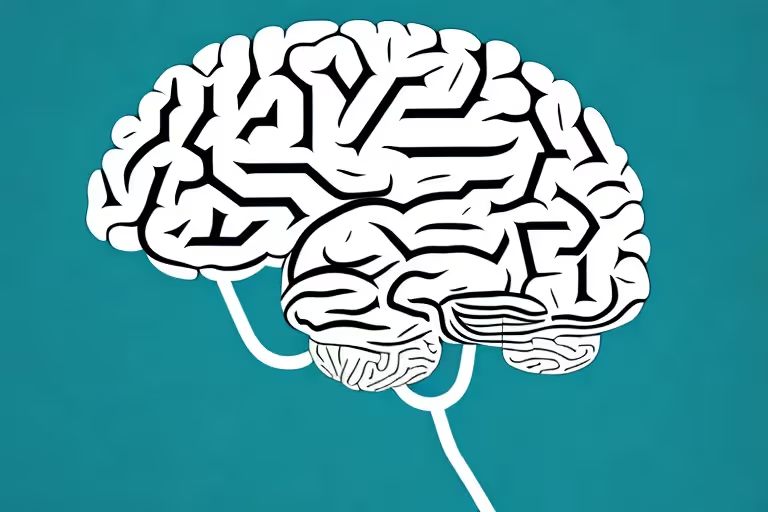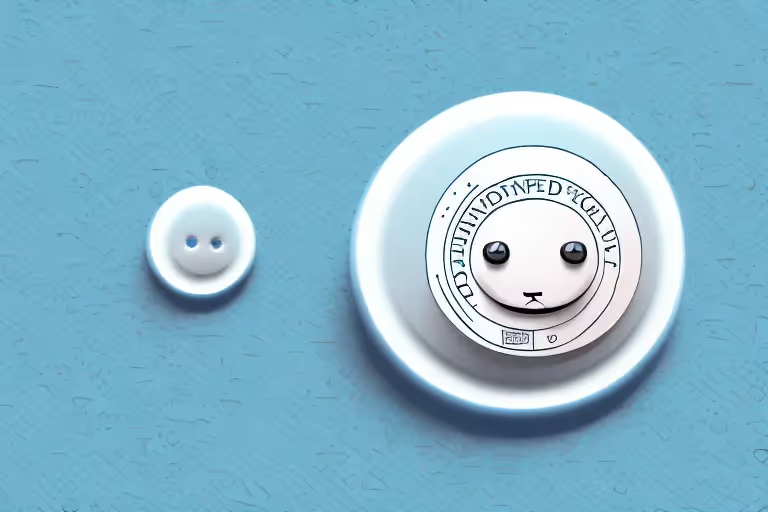If you find meditation difficult, or your mind wanders when you sit down to focus, mantras can help. Mantras are a way to elevate your meditation practice, set intentions, and calm the mind enough to increase focus by repeating words or sounds to aid concentration.
A flexible wellness tool, mantras can be repeated in any language and can also take the form of a phrase that supports a particular desired mind state or goal. Much like affirmations, mantras can help you meditate by providing a way to focus on intention and clarify the cluttered mind. In this article, you'll find a few key concepts around mantras and mantra meditations. Specifically, we'll:
- Introduce the basics of mantra meditations
- Explore how using mantra meditation enhances mental and emotional well-being
- Examine the influence of mantras on focus and clarity duringmeditation
- Experiment with seed mantras and longer mantras
- Learn how to practice kirtan kriya
Meditation Mantra Basics
Mantras can take many forms. Words or phrases can be practiced silently or aloud and still be incredibly effective. When practiced silently, you can focus on the internal reverberation; when aloud, you may have the added benefit of the physical vibration the mantra creates, but the sound and steadiness of focusing on a recurring sound carries many benefits. If you've never practiced mantra meditation, I recommend finding a guided meditation or starting small to stay on track.
Mantras can be a single word or syllable, such as Om, or longer phrases that could even extend to full songs. Single-syllable mantras are known as "seed mantras" because while they are simple, they are said to have the potential to help you grow and flourish. Om, which is translated to mean the "sound of the universe" and is often used in yoga classes, is a wonderful example of a mantra that is easy to remember and can be leveraged to focus a class or individual. If you try to chant Om now, elongating the syllable and breathing out slowly, you'll feel a reverberation in your head and throughout the body. This vibration brings calm by stimulating the vagus nerve and telling your body to rest.
Other mantras can be entire sentences or songs that are repeated or chanted. In kundalini yoga practices, for instance, mantras in Gurmukhi are often much longer. To begin a kundalini yoga practice, for instance, many teachers will lead the class through a chant of Ong Namo Guru Dev Namo, which has a meaning that can be interpreted as "I call to the divine wisdom within, I call to my deepest self." This mantra can be used at the beginning of a class but is also used in meditations where it is chanted for minutes or even hours at a time to help practitioners tune into their wisdom and strength in meditation.
Mantras can also be found in English. Repeating a short phrase or sentence to yourself that has meaning to you can be considered a mantra. While this is sometimes taught in meditation courses, you can also create your personalized mantra, such as I am love or I am peace, which can help you to focus on desired feelings when you are settling into meditation.
Choosing Your Mantra Using the Chakra System
One of your primary considerations when choosing a mantra should be what it truly means to you. If you are chanting something that represents a value or a state of mind you believe will help, you will take the mantra practice more seriously. If chanting entire sentences feels unnatural to you, for instance, you can begin with a seed mantra, such as those associated with the chakra system in yoga. With each recitation, focus on extended breathing.
Below is a guide to traditional chakra mantras in Sanskrit and their meaning and symbolism:
- Root Chakra /1st chakra mantra: Lam. Lam is associated with the lowest chakra, or energy center, at the base of the spine. It is said to represent groundedness, wholeness, and security. The root chakra is often associated with a red or pink lotus flower.
- Sacral Chakra / 2nd chakra mantra: Vam. Vam is associated with creative energy and the way we process the world or relate to others. This chakra is said to sit just below the navel point, so focusing energy here as you chant can activate this creative momentum, joy, and spiritual focus.
- Solar Chakra / 3rd chakra mantra: Ram. Ram symbolizes the core energy of the body and our strength and fortitude, and it is found right at the solar plexus. As you chant focusing on the lower chest, tune into the vibration of strength.
- Heart chakra / 4th chakra mantra: Yam. The heart chakra symbolizes love, so yam, which a yoga instructor I had once referred to as "yum" because she said it was "yummy" can represent all that represents love in your life.
- Throat chakra / 5th chakra mantra: Ham. The throat chakra is associated with speech and intention, and to repeat ham, you can imagine speaking with clarity as you feel the vibration in your throat.
- Third-eye chakra / 6th chakra mantra: Aum. This one is pronounced similar to Om and represents our intuition and ability to transcend and intuit. Also called Anja, this chakra allows you to believe in yourself, thereby cultivating happiness and divine love.
- Crown chakra / 7th chakra mantra: Ah. The crown chakra is our connection with the divine. It symbolizes wisdom, unity, and self-awareness.
These yogic mantras are an excellent way to begin a mantra practice. Because the chakras are correlated with particular energies, you can focus on the energy you'd like to enhance or cultivate. For instance, if you have a big speech coming up, you could repeat the mantra Ham during your meditation practice to prepare. Remember as you practice these mantras to slow the breath, extend the exhale and focus on a sense of calm, wholeness, and awareness.
Mantras for peace and healing
Other mantras that are popular and often used in practice are short phrases with deep symbolism. You can meditate with them alone, silently, as a chant, or sing each repetition of the mantra.
- Om Mani Padme Hum. This mantra practice stems from Tibetan Buddhism and translates to "praise or hail the jewel in the lotus." Om mani padme hum is a mantra of deep reverence, gratitude, and respect that can offer the meditator peace and clarity.
- Ra Ma Da Sa. This kundalini mantra meditation uses vowels and sounds to evoke a beautiful rhythm that is said to bring healing energy and is especially soothing to the nervous system.
- Om Shanti Om. This is a Hindu meditation that means "peace be with you," and as implied evokes a sense of harmony and peacefulness. Because shanti means peace, adding this meditation may also bring a sense of mindfulness as it evokes compassion for self and others. There are variations on this chant, too, in which shanti is repeated.
Integrating Your Mantra into Your Meditation Practice
Repetition and intention are only part of mantra practices. Many practitioners also consider the rhythm and speed of the mantra to help build awareness and deepen meditations. Depending on what resonates for you and what kind of tone you'd like to set for your meditation, you can adopt more of a singing tone or simply repeating the words or phrases.
A good example of this is a mantra meditation called kirtan kriya. Kirtan uses the mantra Sa, Ta Na Ma. And while kirtan can be translated to mean song and is traditionally practiced to a rhythm and in a group where many practitioners harmonize, it can also be chanted alone or in more of a monotone to create a deep calm or increased happiness. To practice this mantra meditation fully, try it for 12 minutes using the following meditation instructions:
- In a meditative position, repeat the mantra sa ta na ma for 2 minutes. You can chant or sing. While you repeat the sounds, allow your index finger and thumb to come together on sa, middle finger, and thumb to come together on ta, ring finger and thumb on na, and pinky and thumb of ma. This movement of the fingers will be repeated throughout the meditation. Much like a mala, this additional sensation works with the rhythm and further focuses the mind.
- After chanting or singing for 2 minutes, feeling the vibration of the mantra, whisper the same mantra for 2 minutes.
- Chant the mantra in your mind for 4 minutes.
- Whisper the mantra for 2 minutes.
- Chant or sing a final time for 2 minutes.
- After the meditation, inhale and stretch your arms up, and allow your fingers to reach up toward the sky as you feel the sounds and vibrations in your body as you repeat the souns. Exhale and notice how you feel as your breathing returns to normal.
Implementing such mantras, whether in Sanskrit or English, can be incredibly powerful due to the combination of vibration, mudra, and mantra. I recommend assessing the changes in your focused meditation process through journaling after implementing various mantra meditations for a week. See what changes for you. Repeating mantras with intention and rhythm can be an excellent meditation technique for dealing with distractions and getting back to a place of mind and body awareness.
The Impact of Meditation and Mantras on Overall Wellbeing
According to the National Institute for Health, mantra meditation leads to "significant stress relief" for many and it may even reduce hypertension, which speaks to the impact of the practice on overall health. Mantra meditation is not right for everyone, but it is worth experimenting with. The practice can help transform meditation practice by supporting focus in a wildly distracting world.
If you’re looking for more guidance and community support, join me at Aura, a holistic wellness app that offers everything from mantra meditation to community support.



.webp)







.avif)

%20(1).avif)


.avif)
.avif)
.webp)


.avif)


















































































































.avif)

















.svg)









